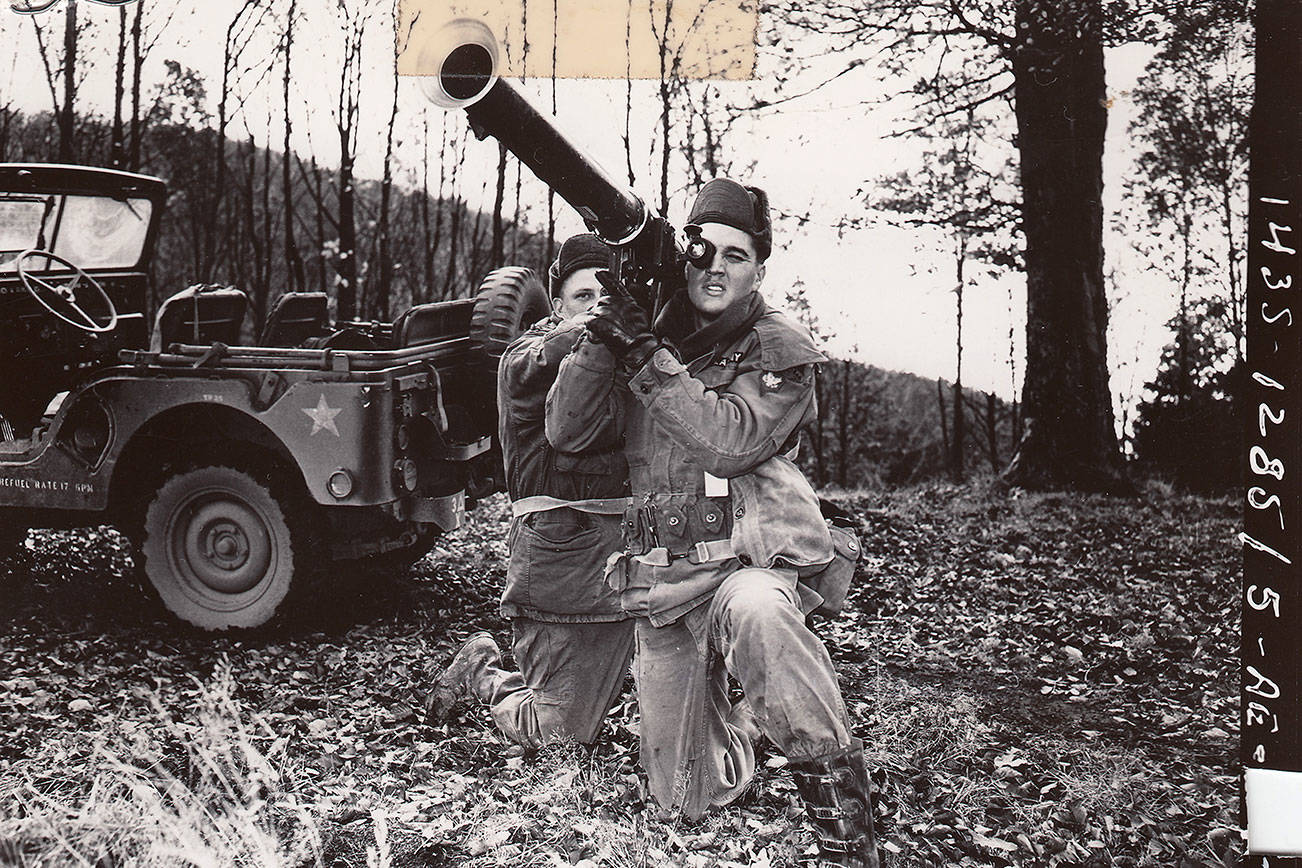Almost 20 years ago I took off to Memphis by myself and stayed in a motel with a small, guitar-shaped swimming pool. It was across Highway 51 from Graceland.
The first thing I did was take the tour at Elvis Presley’s mansion. It seemed natural at the time, but in recent years I have wondered: Why did I want to see Graceland? I like Elvis, and I like Americana, and Graceland’s blend of excess, tragedy, and kitsch was right up my alley. People of every variety, from all over the world, were on the tour. But really: Why were we there? Surely it’s partly because the life of Elvis—an age-old story of innocence, success, decline, and exaltation—resonates in ways that go beyond his music, enough that we all performed a pilgrimage to this secular shrine. But that still doesn’t quite explain it.
Documentary filmmaker Eugene Jarecki (Why We Fight) explores the Elvis mythology in The King, but he’s not so interested in the why. Jarecki’s after the big picture, and that’s part of the problem. If you’re a newcomer to the Church of Elvis, you’ll find here the barest outline of the man’s life: humble childhood, sudden rock-and-roll notoriety, the Army interlude, bad movies, the 1968 comeback, Las Vegas, the painful pill-popping end. Jarecki drives Presley’s 1963 Rolls-Royce from Tupelo to Memphis to Hollywood to Vegas, using the car as a traveling studio for interviews. There are charming moments, especially when musicians climb aboard and play—although John Hiatt’s first reaction upon sitting in the backseat is to burst into tears, imagining how trapped Elvis must’ve felt within the Rolls-Royce of celebrity.
Music stays in the movie’s backseat. Jarecki’s real target is what Elvis’s story says about America. When the Rolls breaks down on the highway, he wants us to understand that America is breaking down, too. Footage of a puffy, drug-addled Elvis parallels the decline of the nation. There may be good material here, but the director’s approach is too easy. When Jarecki cuts together a live performance of “Unchained Melody” with a montage of the great events of the past 40 years, the gut-punch is undeniable … but it feels like a shortcut.
Jarecki enlists a series of bafflingly random talking heads to weigh in. Reliably thoughtful rock critic Greil Marcus contributes an amazing, if slightly nutty, comparison of Elvis to Captain Ahab, and Ethan Hawke is all enthusiasm when he visits Sun Studios in Memphis. David Simon, the creator of The Wire, contributes a simple but insightful criticism: Why, he asks Jarecki, are they tooling around in a Rolls, instead of one of Elvis’ Cadillacs, a more modestly budgeted car made in America? Much less persuasive are Dan Rather, Mike Myers (representing “the Canadian immigrant perspective,” as though acknowledging the absurdity of his presence here), and Ashton Kutcher. Alec Baldwin is around to connect Elvis to Trump’s America, and this, finally, seems to be Jarecki’s real subject, although dragging the King’s ill-used carcass into the current debate doesn’t illuminate much of anything. Heed the holy word of Elvis: a little less conversation, a little more action.
The King
Opens Friday, July 6 | SIFF Cinema Uptown | Rated R








